第十课时七年级(下) Units7-8教材精讲精练课件—鲁教版中考英语一轮复习
文档属性
| 名称 | 第十课时七年级(下) Units7-8教材精讲精练课件—鲁教版中考英语一轮复习 | 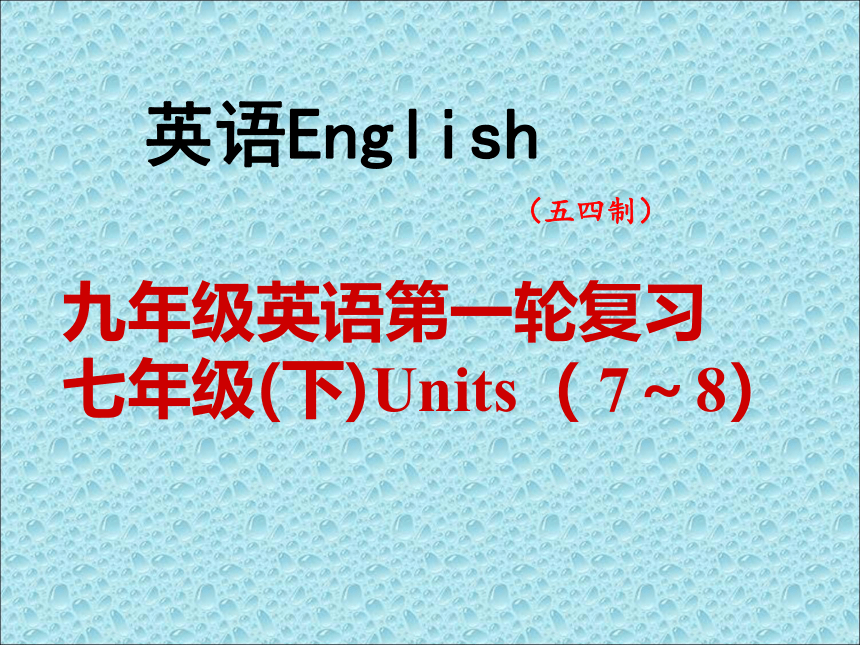 | |
| 格式 | zip | ||
| 文件大小 | 640.3KB | ||
| 资源类型 | 试卷 | ||
| 版本资源 | 鲁教版 | ||
| 科目 | 英语 | ||
| 更新时间 | 2023-05-05 16:19:16 | ||
图片预览

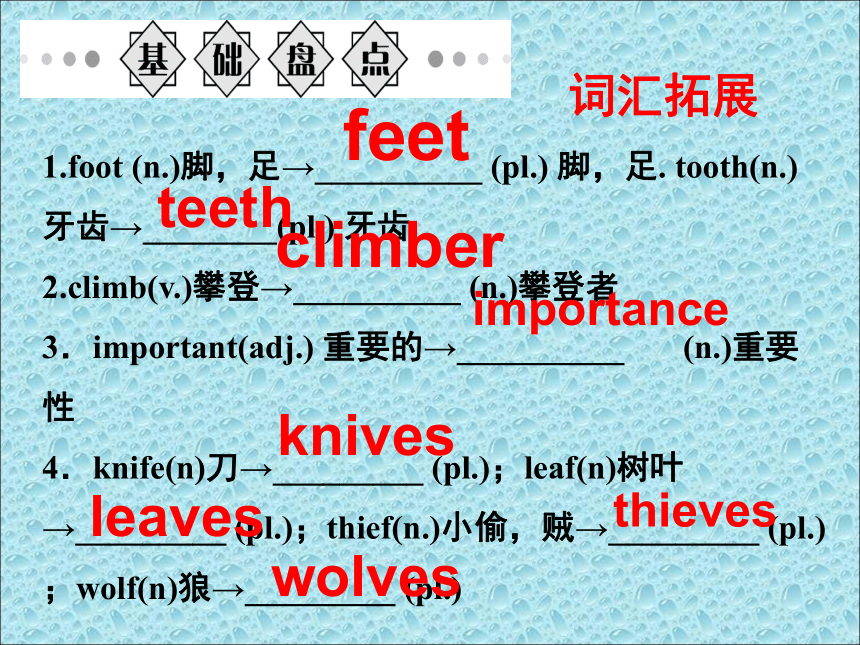
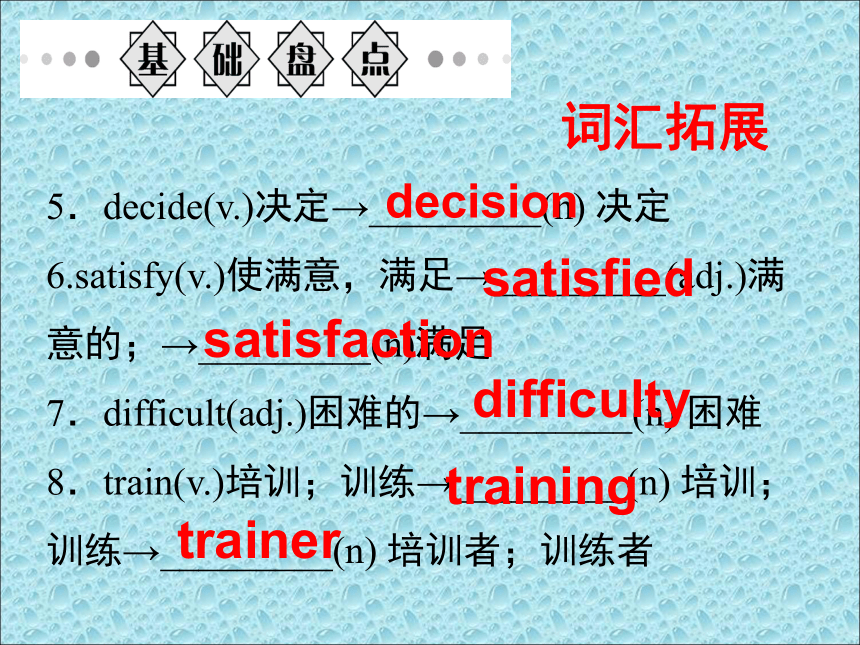
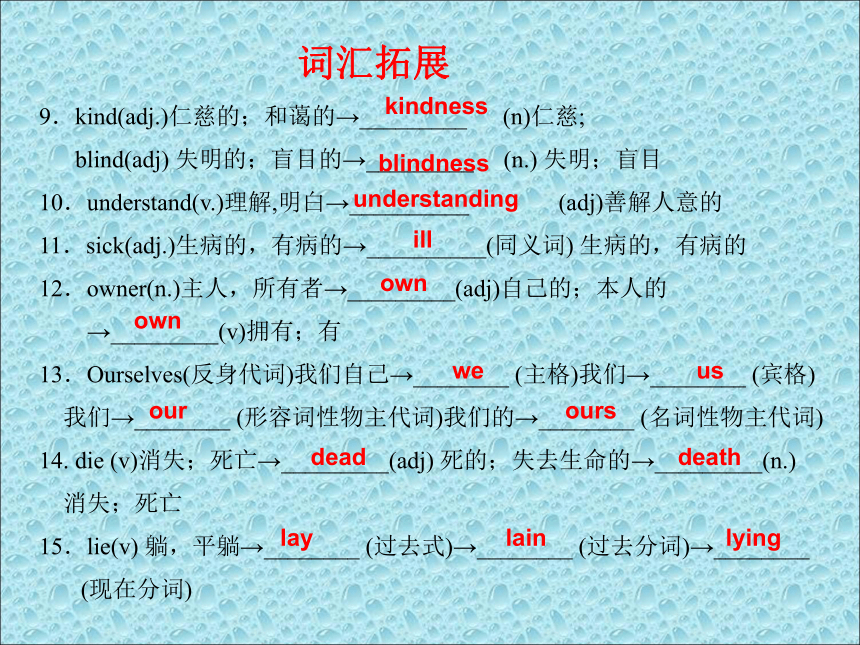
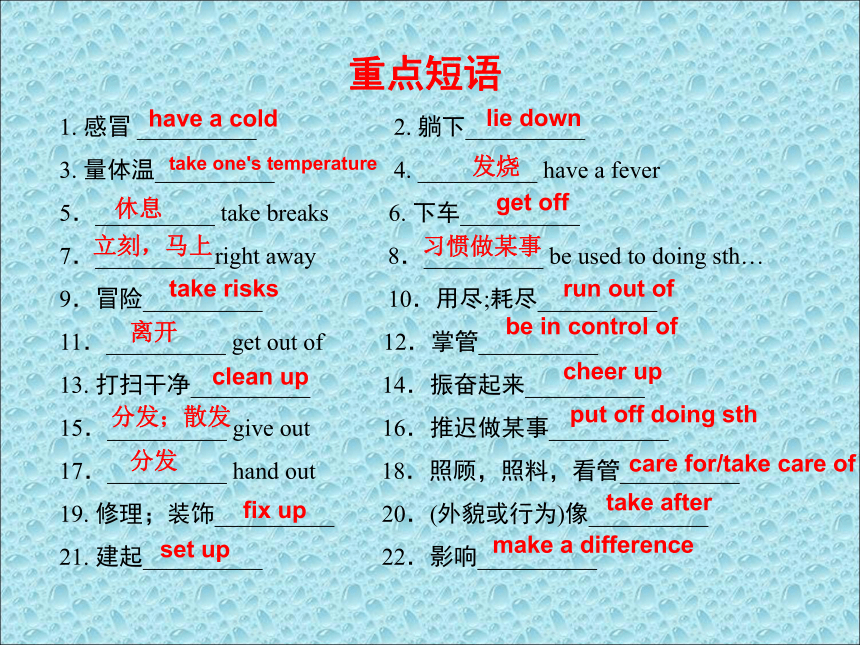
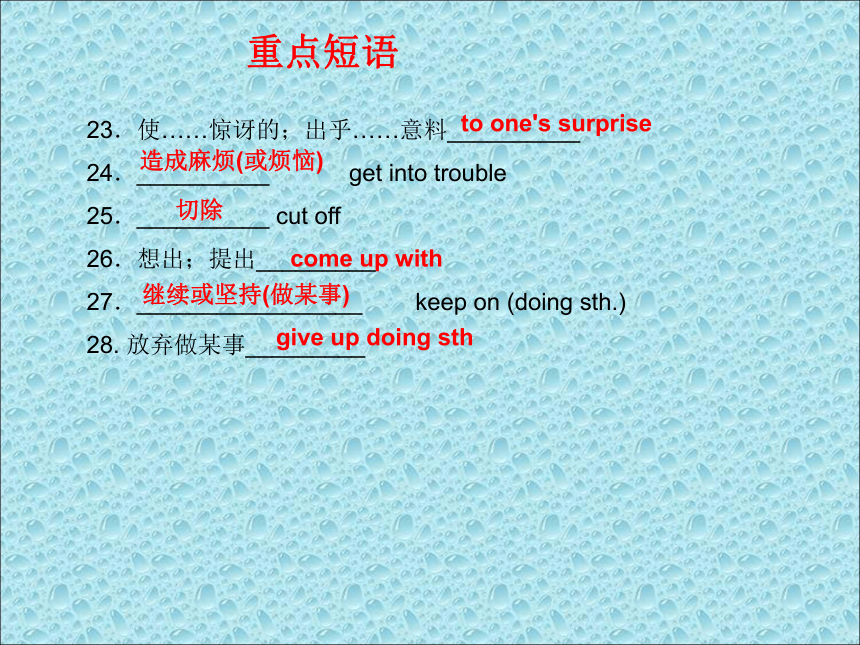
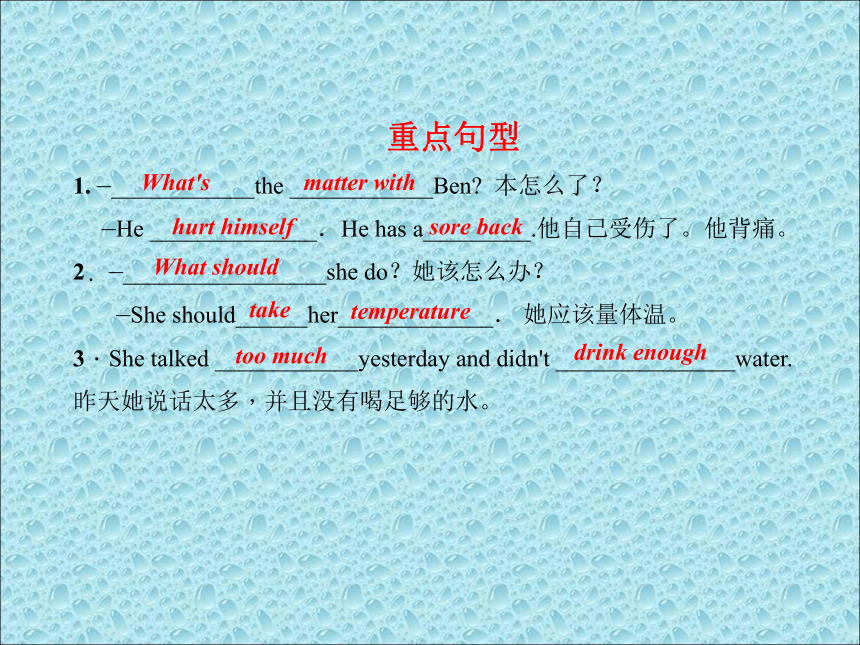
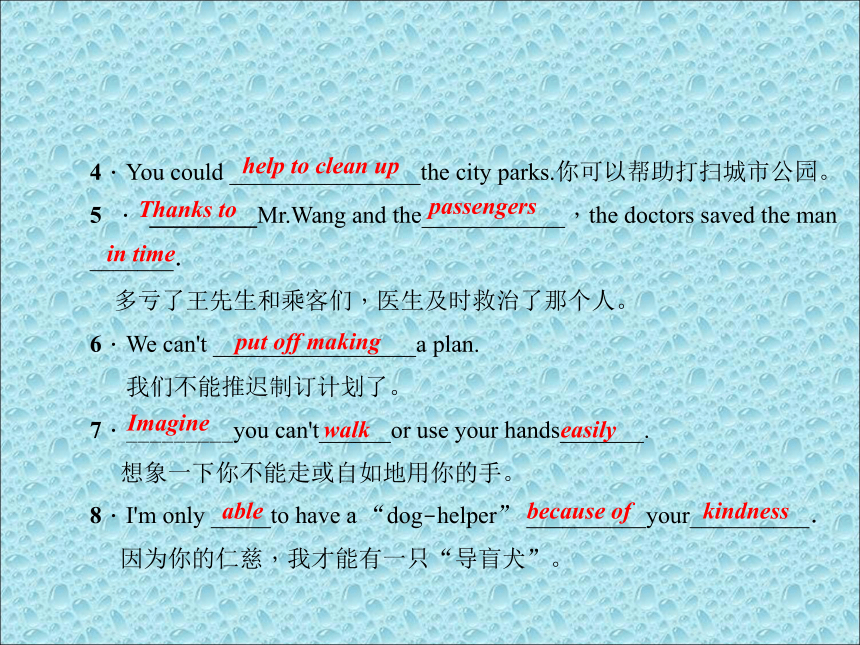
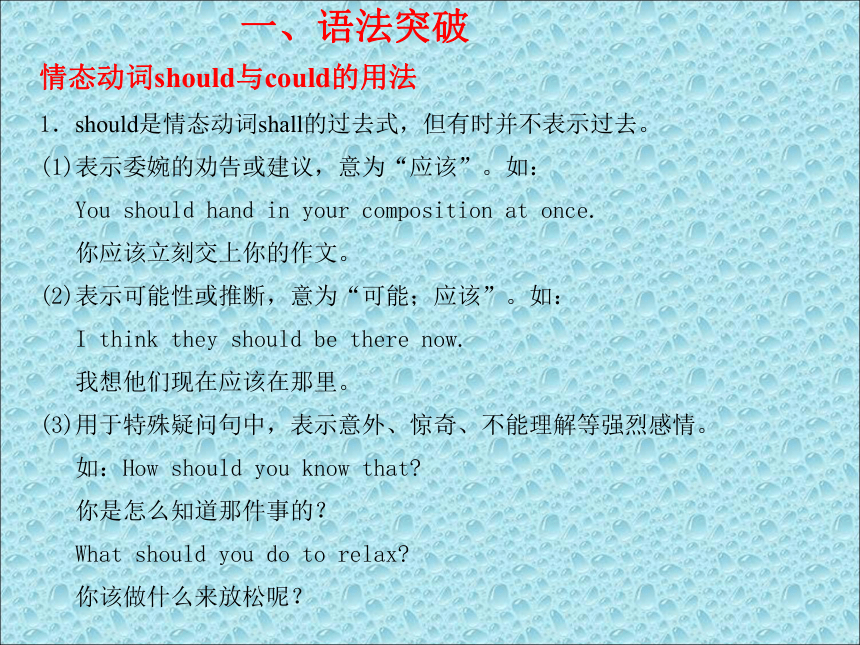
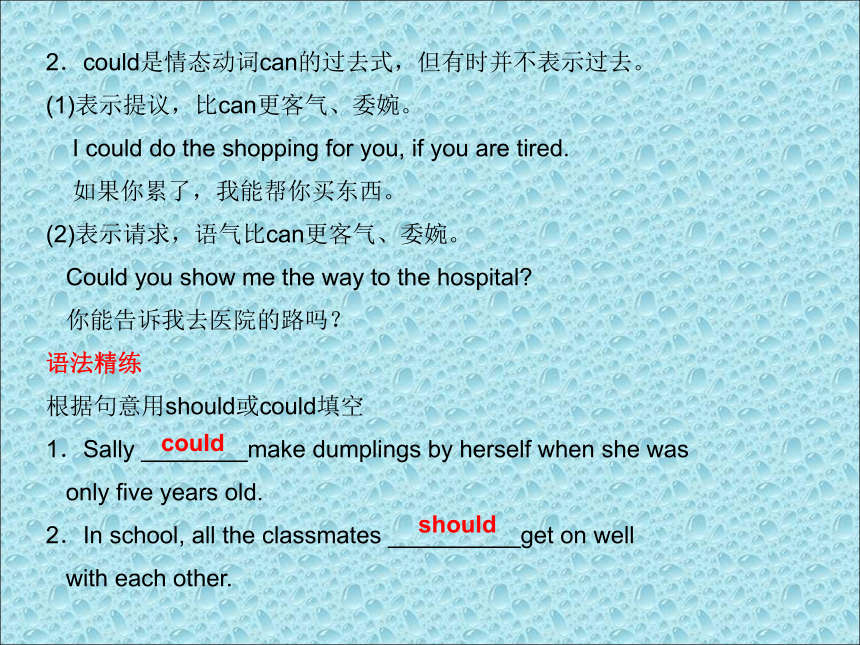
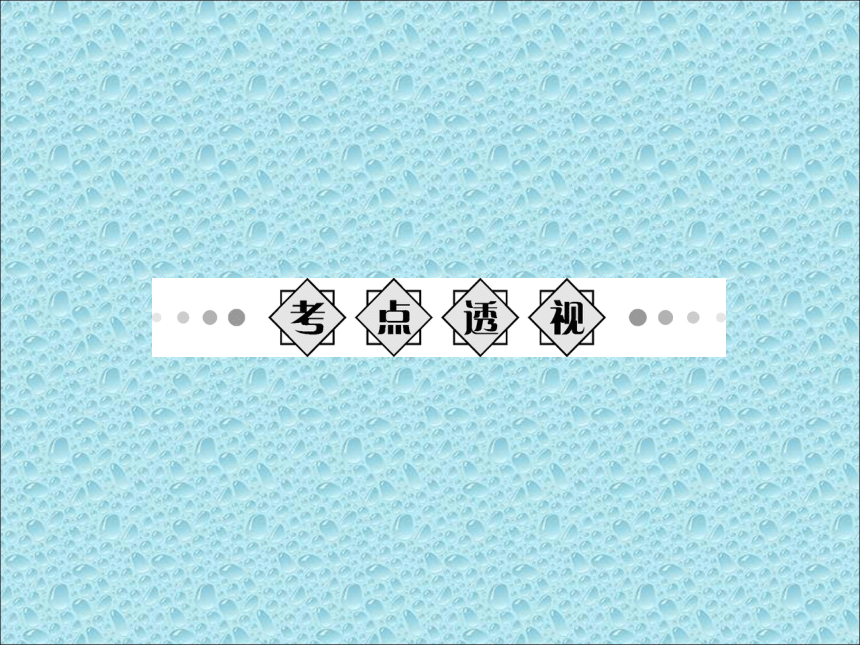
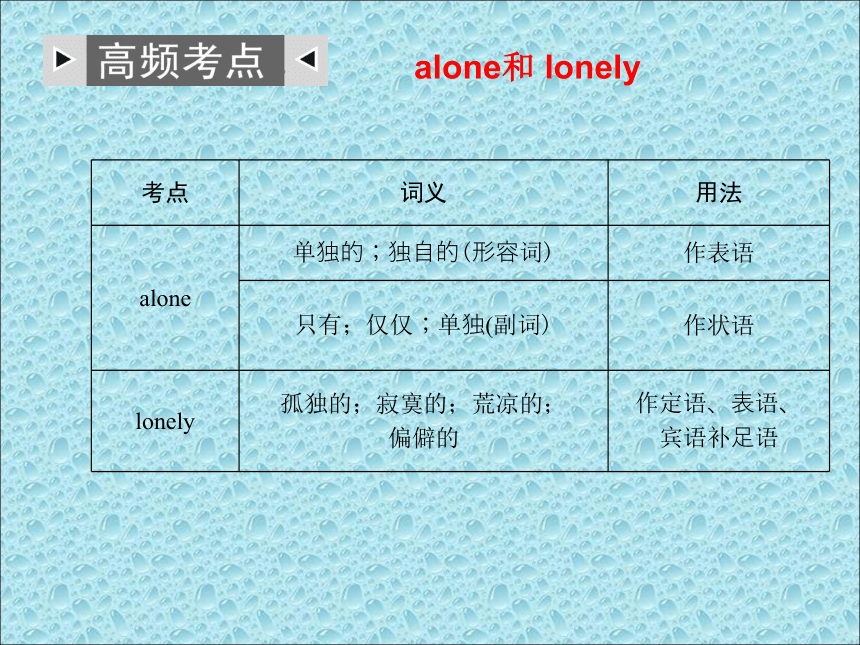
文档简介
(共33张PPT)
九年级英语第一轮复习
七年级(下)Units( 7~8)
英语English
(五四制)
词汇拓展
1.foot (n.)脚,足→__________ (pl.) 脚,足. tooth(n.)牙齿→________(pl.) 牙齿
2.climb(v.)攀登→__________ (n.)攀登者
3.important(adj.) 重要的→__________ (n.)重要性
4.knife(n)刀→_________ (pl.);leaf(n)树叶→_________ (pl.);thief(n.)小偷,贼→_________ (pl.);wolf(n)狼→_________ (pl.)
feet
climber
importance
knives
leaves
thieves
teeth
wolves
词汇拓展
5.decide(v.)决定→_________(n) 决定
6.satisfy(v.)使满意,满足→_________(adj.)满意的;→_________(n)满足
7.difficult(adj.)困难的→_________(n) 困难
8.train(v.)培训;训练→_________(n) 培训;训练→_________(n) 培训者;训练者
decision
satisfied
difficulty
training
satisfaction
trainer
词汇拓展
9.kind(adj.)仁慈的;和蔼的→_________ (n)仁慈;
blind(adj) 失明的;盲目的→_________ (n.) 失明;盲目
10.understand(v.)理解,明白→__________ (adj)善解人意的
11.sick(adj.)生病的,有病的→__________(同义词) 生病的,有病的
12.owner(n.)主人,所有者→_________(adj)自己的;本人的
→_________(v)拥有;有
13.Ourselves(反身代词)我们自己→________ (主格)我们→________ (宾格)
我们→________ (形容词性物主代词)我们的→________ (名词性物主代词)
14. die (v)消失;死亡→_________(adj) 死的;失去生命的→_________(n.)
消失;死亡
15.lie(v) 躺,平躺→________ (过去式)→________ (过去分词)→________
(现在分词)
kindness
blindness
understanding
ill
own
own
we us
our ours
dead death
lay lain lying
重点短语
1. 感冒 __________ 2. 躺下__________
3. 量体温__________ 4. __________ have a fever
5.__________ take breaks 6. 下车__________
7.__________right away 8.__________ be used to doing sth…
9.冒险__________ 10.用尽;耗尽__________
11.__________ get out of 12.掌管__________
13. 打扫干净__________ 14.振奋起来__________
15.__________ give out 16.推迟做某事__________
17.__________ hand out 18.照顾,照料,看管__________
19. 修理;装饰__________ 20.(外貌或行为)像__________
21. 建起__________ 22.影响__________
lie down
have a cold
take one's temperature
发烧
休息
get off
立刻,马上
习惯做某事
take risks
run out of
离开
be in control of
clean up
cheer up
分发;散发
put off doing sth
分发
care for/take care of
fix up
take after
set up
make a difference
重点短语
23.使……惊讶的;出乎……意料__________
24.__________ get into trouble
25.__________ cut off
26.想出;提出_________
27._________________ keep on (doing sth.)
28. 放弃做某事_________
to one's surprise
造成麻烦(或烦恼)
切除
come up with
继续或坚持(做某事)
give up doing sth
重点句型
1. —____________the ____________Ben 本怎么了?
—He ______________.He has a_________.他自己受伤了。他背痛。
2. —_________________she do?她该怎么办?
—She should______her_____________. 她应该量体温。
3.She talked ____________yesterday and didn't _______________water.
昨天她说话太多,并且没有喝足够的水。
What's
matter with
hurt himself
sore back
What should
take
temperature
too much
drink enough
4.You could ________________the city parks.你可以帮助打扫城市公园。
5 . _________Mr.Wang and the____________,the doctors saved the man _______.
多亏了王先生和乘客们,医生及时救治了那个人。
6.We can't _________________a plan.
我们不能推迟制订计划了。
7._________you can't______or use your hands_______.
想象一下你不能走或自如地用你的手。
8.I'm only _____to have a “dog helper” __________your__________.
因为你的仁慈,我才能有一只“导盲犬”。
help to clean up
Thanks to
passengers
in time
put off making
Imagine
walk
easily
able
because of
kindness
一、语法突破
情态动词should与could的用法
1.should是情态动词shall的过去式,但有时并不表示过去。
(1)表示委婉的劝告或建议,意为“应该”。如:
You should hand in your composition at once.
你应该立刻交上你的作文。
(2)表示可能性或推断,意为“可能;应该”。如:
I think they should be there now.
我想他们现在应该在那里。
(3)用于特殊疑问句中,表示意外、惊奇、不能理解等强烈感情。
如:How should you know that
你是怎么知道那件事的?
What should you do to relax
你该做什么来放松呢?
2.could是情态动词can的过去式,但有时并不表示过去。
(1)表示提议,比can更客气、委婉。
I could do the shopping for you, if you are tired.
如果你累了,我能帮你买东西。
(2)表示请求,语气比can更客气、委婉。
Could you show me the way to the hospital
你能告诉我去医院的路吗?
语法精练
根据句意用should或could填空
1.Sally ________make dumplings by herself when she was
only five years old.
2.In school, all the classmates __________get on well
with each other.
should
could
考点 词义 用法
alone 单独的;独自的(形容词) 作表语
只有;仅仅;单独(副词) 作状语
lonely 孤独的;寂寞的;荒凉的;
偏僻的 作定语、表语、
宾语补足语
alone和 lonely
Ⅰ.单项选择。
1.Wall E felt ______ when he was left ________ on the Earth.
A.lonely,lonely B.lonely,alone
C.alone,alone D.alone,lonely
2.—It seems that the old man feels ______.Let's go over and talk with him.
—You'd better let him ________,or you may get into trouble.
A.alone,lonely B.lonely,alone
C.alone,alone D.lonely,lonely
3.The boy did his homework with the help of his father in the past.But now he can do it alone._______
A.for himself B.on himself
C.by himself D.with himself
B
C
B
跟踪练习:
4.I don't think you can finish the work by_yourself.____
A.lonely B.alone C.easily D.easy
5.Though he is ____ at home,he doesn't feel ________ for he has many things to do.
A.alone,lonely B.lonely,alone C.alone,alone
B
A
Ⅱ.根据汉语完成句子,每空一词。
1.当父母出去工作的时候,那小孩感到寂寞。
The child ____________when her parents went out to work.
2.第二天,他独自去了森林。
The next day he _________to the forest ________.
3.那是一个荒凉的岛屿,你最好不要去。
That is ______________island.You'd better not go there.
felt lonely
went
alone
a lonely
考点 词义及用法
used to do
sth. 意为“过去常常做某事”,to是动词不定式符号,后面接动词原形。其否定形式为didn't use to do sth.或usedn't to do sth.;一般疑问形式为Used sb.to do sth.?或Did sb.use to do sth.?附加疑问句式为use(d) n't sb.或didn't sb.。
be used to
doing sth. 意为“习惯于做某事”;to是介词,后面接名词或动名词。
be used to
do sth. 意为“被用来做某事”,同be used for (doing) sth.。
use to do sth; be used to doing sth和
be used to do sth 的用法
一.根据汉语完成句子,每空词数不限。
1.我爸爸过去常常开车上班,现在坐公交车。(used to do)
________________________________________________________
2.他习惯于晚饭后散步。
He _________________after supper.
3.他过去常常整夜玩电脑游戏,但现在他宁愿把时间花在功课上也不上网了。
He _________play computer games all night,but now he
___________spend his time on his lessons than on the Internet.
My father used to drive to work,now he goes to work by bus.
is used to walking
used to
would rather
raise/rise
【考点精讲】
两个词都有“举起;提高;升起”之意,但其用法不尽相同。
◆rise是不及物动词,是“升起;上升;上涨”的意思。表示由低变
高的变化过程。eg:
The sun rises in the east and sets in the west.
太阳从东方升起而落在西方。
The river ha s risen several metres.河水涨了好几米。
◆raise是及物动词,是“举起;提高;抬高”的意思,强调动作的姿
势。eg:
If anyone has questions,please raise your hand.
如果有人还存在问题,请举手。
Ⅰ.单项选择。
1.The price of phones_______recently.
A.rise B.has risen C.raise D.has raised
2.—Why do you have the talent show
—Because we want to______some money to help build schools in
Yushu.
A.lend B.take C.look D.raise
Ⅱ.用rise或raise的适当形式填空。
3.They must find a way to_______ the temperature in the house.
4.The population of the city has ______to five million.
5.He watched the smoke _______from his cigarette.
中考回放
raise
risen
rise
B
D
一、单项选择。
1.Tom failed in the exam again ______ he tried his best)
A.if B.unless C.though D.because
2.Drinking alcohol(白酒) can be ______ your brains.So people in China
aren't allowed to drink it if they are younger than 18
A.good at B.good with C.harmful to D.thirsty for
3.—______?
—I have a headache and I don't feel like eating anything
A.How are you B.What can I do for you
C.What's the matter with you D.How do you like it
4.—Why do you have the talent show
—Because we want to______some money to help build schools in Yushu.
A.lend B.take C.look D.raise
C
C
C
D
5.______ the development of economy,my hometown is becoming more and more beautiful.
A.In B.On C.By D.With
D
6.—Why are you in such a hurry,Mike?
—There ______ an NBA basketball game in ten minutes.
A.will have B.will be C.is going to have D.are going to be
7.—Alice,don't put your things here,______.
—OK,I will
A.put away them B.put on them C.put them away D.put them on
8.—Is your headache getting ______?
—No,it's worse
A.better B.bad C.less D.well
B
C
A
9.—Tom,what's wrong with you?You look tired.
—Oh,I ______ late to watch a football game last night.I slept for only
two hours
A.gave up B.stayed up C.set up D.looked up
10.—I have great ___ in finishing the work by myself.Could you help me
—No problem
A.fun B.Success C.advice D.difficulty
11.After training for two months,he ____ won the first prize for the competition.
A.finally B.actually C.usually D.hardly
12.I ____ get up late,but now I ________ getting up early.
A.used to,used to B.used to,am used to
C.am used to,am used to D.am used to,used to
B
D
A
B
13.His father retired(退休) last year,but he ____ the company.
A.still works B.still work for
C.still is in the control of D.is still in control of
14.David Burt's dream in China is to go into the west and ____ an early childhood school there.
A.clean up B.look up C.give up D.set up
15.Though he is ____ at home,he doesn't feel ________ for he has many things to do
A.alone,lonely B.lonely,alone C.alone,alone
D
D
A
二、根据句意和汉语提示写单词完成句子。
1.There is a dog _________(躺) on the ground.What's wrong
2.—How many ____________(乘客) are there on the bus
—About fifty.
3.How many ________(千克) of apples would you like
4.The ________(死) of the old woman made the whole city sad.
5.She stayed in the house alone,but she never felt ________(寂寞的).
lying
passengers
kilos
death
lonely
6.On the way to solve the problem,we have met many ________________(困难).
7.After winning the final match,we were all very _________(激动的).
8.We were moved deeply by her ____________(善良).
9.I had to walk there because my bike was ____________(破损的).
10.You can't ___________(想象) how hard the math problem is.
difficulties
excited
kindness
broken
imagine
三、用括号中所给单词的适当形式填空。
1.One of her _______(foot) was hurt badly while running.
2.She likes to work out the problem all by __________(she).
3.If you can know the ______________(important) of the knowledge,you will work harder.
4.You must be serious and careful before making any _______________(decide).
5.He always treats others with a lot of ______________(kind).
feet
herself
importance
decisions
kindness
Knives
6. (knife) are used for cutting things off.
7.We all felt sad and sorry when we heard his _____________(die).
8.I think she can solve the problem without any ____________(difficult).
9.The _______________(satify) on her face shows that you're done a good job.
10.The _______________(feel) of a pain makes him nervous and sad.
death
difficulties
satisfaction
feeling
四、从方框中选择恰当的短语并用其正确形式完成下列各句。
get out of,give up,agree to,cut off,give out,clean up,be in control of,run out of,take one's temperature,make a difference
1.They ___________food to some homeless people yesterday afternoon.
2.We are going to _______________the streets in our town.
3.She ____________her money and borrowed some from me.
4.Will the bad weather _________________to your work
5.The doctor asked Lucy's father _________________smoking.
gave out
clean up
ran out of
make a difference
to give up
get out of
6.The door is locked,so I couldn't ______________the room.
7.Jim ___________a small piece of bread and gave it to me.
8.I've____________________ and it seems a little higher.
9.Alice didn't ___________go there on foot,because her foot was hurt.
10.Who will ______________the machine instead of Mr.Black
cut off
taken my temperature
agree to
be in control of
★★写作专题——倡议书★★
一、要点入门
倡议书一般包括以下部分:
1.标题:简单概括倡议的内容。多数情况下可省略。
2.称呼:根据受倡议对象选用适当的称谓,如Dear classmates,
Ladies and gentlemen,Boys and girls等。
3.正文:主要写倡议的背景、目的、内容、意义及要求。
4.结尾:表示倡议者的决心、希望以及建议,常用Let's…Why not…
?等句型。
5.落款:写倡议者的单位名称或发起人姓名。
二、典型例题
某英文网站发出“步行去上学”的倡议,请你写一篇英语倡议书,在你校进行宣传。可适当发挥,100词左右。
内容包括:走路有利健康;和同学结伴有利于……;让父母节省……;
使城市……
提示词语:be good for;develop friendship;save
【思路点拨】
本篇倡议书主要说明“步行去上学”的意义。首先总述“步行去上学”有益学生。然后可详细阐述益处,即步行有利健康,和同学结伴有利于建立友谊、相互交流,让父母节省送你的时间,保护环境、美化城市等。最后重申主题,倡议同学们步行去上学。阐述益处时用一般现在时;发出倡议时可用一般将来时。倡议的对象是在校学生,包括倡议发起者,故用第一人称。
【写作模版】
总述Walking to school does much good to us.
详述Walking is good for…It's fun to…It's helpful to…It can make…
倡议Let's go to school on foot.
【满分范文】
Boys and girls,
As we know,going to school on foot does much good to us . First of all,walking to school is the most wonderful way to exercise and it's good for our health . Next,it's fun to walk together with our classmates every day . We can talk about something interesting on the way and it's helpful for us to develop friendship . What's more,if we walk,our parents won't have to give us a ride to school . And more walking and less driving helps to make our city cleaner.
So let's go to school on foot from now on.
Li Ming
Thankyou!
九年级英语第一轮复习
七年级(下)Units( 7~8)
英语English
(五四制)
词汇拓展
1.foot (n.)脚,足→__________ (pl.) 脚,足. tooth(n.)牙齿→________(pl.) 牙齿
2.climb(v.)攀登→__________ (n.)攀登者
3.important(adj.) 重要的→__________ (n.)重要性
4.knife(n)刀→_________ (pl.);leaf(n)树叶→_________ (pl.);thief(n.)小偷,贼→_________ (pl.);wolf(n)狼→_________ (pl.)
feet
climber
importance
knives
leaves
thieves
teeth
wolves
词汇拓展
5.decide(v.)决定→_________(n) 决定
6.satisfy(v.)使满意,满足→_________(adj.)满意的;→_________(n)满足
7.difficult(adj.)困难的→_________(n) 困难
8.train(v.)培训;训练→_________(n) 培训;训练→_________(n) 培训者;训练者
decision
satisfied
difficulty
training
satisfaction
trainer
词汇拓展
9.kind(adj.)仁慈的;和蔼的→_________ (n)仁慈;
blind(adj) 失明的;盲目的→_________ (n.) 失明;盲目
10.understand(v.)理解,明白→__________ (adj)善解人意的
11.sick(adj.)生病的,有病的→__________(同义词) 生病的,有病的
12.owner(n.)主人,所有者→_________(adj)自己的;本人的
→_________(v)拥有;有
13.Ourselves(反身代词)我们自己→________ (主格)我们→________ (宾格)
我们→________ (形容词性物主代词)我们的→________ (名词性物主代词)
14. die (v)消失;死亡→_________(adj) 死的;失去生命的→_________(n.)
消失;死亡
15.lie(v) 躺,平躺→________ (过去式)→________ (过去分词)→________
(现在分词)
kindness
blindness
understanding
ill
own
own
we us
our ours
dead death
lay lain lying
重点短语
1. 感冒 __________ 2. 躺下__________
3. 量体温__________ 4. __________ have a fever
5.__________ take breaks 6. 下车__________
7.__________right away 8.__________ be used to doing sth…
9.冒险__________ 10.用尽;耗尽__________
11.__________ get out of 12.掌管__________
13. 打扫干净__________ 14.振奋起来__________
15.__________ give out 16.推迟做某事__________
17.__________ hand out 18.照顾,照料,看管__________
19. 修理;装饰__________ 20.(外貌或行为)像__________
21. 建起__________ 22.影响__________
lie down
have a cold
take one's temperature
发烧
休息
get off
立刻,马上
习惯做某事
take risks
run out of
离开
be in control of
clean up
cheer up
分发;散发
put off doing sth
分发
care for/take care of
fix up
take after
set up
make a difference
重点短语
23.使……惊讶的;出乎……意料__________
24.__________ get into trouble
25.__________ cut off
26.想出;提出_________
27._________________ keep on (doing sth.)
28. 放弃做某事_________
to one's surprise
造成麻烦(或烦恼)
切除
come up with
继续或坚持(做某事)
give up doing sth
重点句型
1. —____________the ____________Ben 本怎么了?
—He ______________.He has a_________.他自己受伤了。他背痛。
2. —_________________she do?她该怎么办?
—She should______her_____________. 她应该量体温。
3.She talked ____________yesterday and didn't _______________water.
昨天她说话太多,并且没有喝足够的水。
What's
matter with
hurt himself
sore back
What should
take
temperature
too much
drink enough
4.You could ________________the city parks.你可以帮助打扫城市公园。
5 . _________Mr.Wang and the____________,the doctors saved the man _______.
多亏了王先生和乘客们,医生及时救治了那个人。
6.We can't _________________a plan.
我们不能推迟制订计划了。
7._________you can't______or use your hands_______.
想象一下你不能走或自如地用你的手。
8.I'm only _____to have a “dog helper” __________your__________.
因为你的仁慈,我才能有一只“导盲犬”。
help to clean up
Thanks to
passengers
in time
put off making
Imagine
walk
easily
able
because of
kindness
一、语法突破
情态动词should与could的用法
1.should是情态动词shall的过去式,但有时并不表示过去。
(1)表示委婉的劝告或建议,意为“应该”。如:
You should hand in your composition at once.
你应该立刻交上你的作文。
(2)表示可能性或推断,意为“可能;应该”。如:
I think they should be there now.
我想他们现在应该在那里。
(3)用于特殊疑问句中,表示意外、惊奇、不能理解等强烈感情。
如:How should you know that
你是怎么知道那件事的?
What should you do to relax
你该做什么来放松呢?
2.could是情态动词can的过去式,但有时并不表示过去。
(1)表示提议,比can更客气、委婉。
I could do the shopping for you, if you are tired.
如果你累了,我能帮你买东西。
(2)表示请求,语气比can更客气、委婉。
Could you show me the way to the hospital
你能告诉我去医院的路吗?
语法精练
根据句意用should或could填空
1.Sally ________make dumplings by herself when she was
only five years old.
2.In school, all the classmates __________get on well
with each other.
should
could
考点 词义 用法
alone 单独的;独自的(形容词) 作表语
只有;仅仅;单独(副词) 作状语
lonely 孤独的;寂寞的;荒凉的;
偏僻的 作定语、表语、
宾语补足语
alone和 lonely
Ⅰ.单项选择。
1.Wall E felt ______ when he was left ________ on the Earth.
A.lonely,lonely B.lonely,alone
C.alone,alone D.alone,lonely
2.—It seems that the old man feels ______.Let's go over and talk with him.
—You'd better let him ________,or you may get into trouble.
A.alone,lonely B.lonely,alone
C.alone,alone D.lonely,lonely
3.The boy did his homework with the help of his father in the past.But now he can do it alone._______
A.for himself B.on himself
C.by himself D.with himself
B
C
B
跟踪练习:
4.I don't think you can finish the work by_yourself.____
A.lonely B.alone C.easily D.easy
5.Though he is ____ at home,he doesn't feel ________ for he has many things to do.
A.alone,lonely B.lonely,alone C.alone,alone
B
A
Ⅱ.根据汉语完成句子,每空一词。
1.当父母出去工作的时候,那小孩感到寂寞。
The child ____________when her parents went out to work.
2.第二天,他独自去了森林。
The next day he _________to the forest ________.
3.那是一个荒凉的岛屿,你最好不要去。
That is ______________island.You'd better not go there.
felt lonely
went
alone
a lonely
考点 词义及用法
used to do
sth. 意为“过去常常做某事”,to是动词不定式符号,后面接动词原形。其否定形式为didn't use to do sth.或usedn't to do sth.;一般疑问形式为Used sb.to do sth.?或Did sb.use to do sth.?附加疑问句式为use(d) n't sb.或didn't sb.。
be used to
doing sth. 意为“习惯于做某事”;to是介词,后面接名词或动名词。
be used to
do sth. 意为“被用来做某事”,同be used for (doing) sth.。
use to do sth; be used to doing sth和
be used to do sth 的用法
一.根据汉语完成句子,每空词数不限。
1.我爸爸过去常常开车上班,现在坐公交车。(used to do)
________________________________________________________
2.他习惯于晚饭后散步。
He _________________after supper.
3.他过去常常整夜玩电脑游戏,但现在他宁愿把时间花在功课上也不上网了。
He _________play computer games all night,but now he
___________spend his time on his lessons than on the Internet.
My father used to drive to work,now he goes to work by bus.
is used to walking
used to
would rather
raise/rise
【考点精讲】
两个词都有“举起;提高;升起”之意,但其用法不尽相同。
◆rise是不及物动词,是“升起;上升;上涨”的意思。表示由低变
高的变化过程。eg:
The sun rises in the east and sets in the west.
太阳从东方升起而落在西方。
The river ha s risen several metres.河水涨了好几米。
◆raise是及物动词,是“举起;提高;抬高”的意思,强调动作的姿
势。eg:
If anyone has questions,please raise your hand.
如果有人还存在问题,请举手。
Ⅰ.单项选择。
1.The price of phones_______recently.
A.rise B.has risen C.raise D.has raised
2.—Why do you have the talent show
—Because we want to______some money to help build schools in
Yushu.
A.lend B.take C.look D.raise
Ⅱ.用rise或raise的适当形式填空。
3.They must find a way to_______ the temperature in the house.
4.The population of the city has ______to five million.
5.He watched the smoke _______from his cigarette.
中考回放
raise
risen
rise
B
D
一、单项选择。
1.Tom failed in the exam again ______ he tried his best)
A.if B.unless C.though D.because
2.Drinking alcohol(白酒) can be ______ your brains.So people in China
aren't allowed to drink it if they are younger than 18
A.good at B.good with C.harmful to D.thirsty for
3.—______?
—I have a headache and I don't feel like eating anything
A.How are you B.What can I do for you
C.What's the matter with you D.How do you like it
4.—Why do you have the talent show
—Because we want to______some money to help build schools in Yushu.
A.lend B.take C.look D.raise
C
C
C
D
5.______ the development of economy,my hometown is becoming more and more beautiful.
A.In B.On C.By D.With
D
6.—Why are you in such a hurry,Mike?
—There ______ an NBA basketball game in ten minutes.
A.will have B.will be C.is going to have D.are going to be
7.—Alice,don't put your things here,______.
—OK,I will
A.put away them B.put on them C.put them away D.put them on
8.—Is your headache getting ______?
—No,it's worse
A.better B.bad C.less D.well
B
C
A
9.—Tom,what's wrong with you?You look tired.
—Oh,I ______ late to watch a football game last night.I slept for only
two hours
A.gave up B.stayed up C.set up D.looked up
10.—I have great ___ in finishing the work by myself.Could you help me
—No problem
A.fun B.Success C.advice D.difficulty
11.After training for two months,he ____ won the first prize for the competition.
A.finally B.actually C.usually D.hardly
12.I ____ get up late,but now I ________ getting up early.
A.used to,used to B.used to,am used to
C.am used to,am used to D.am used to,used to
B
D
A
B
13.His father retired(退休) last year,but he ____ the company.
A.still works B.still work for
C.still is in the control of D.is still in control of
14.David Burt's dream in China is to go into the west and ____ an early childhood school there.
A.clean up B.look up C.give up D.set up
15.Though he is ____ at home,he doesn't feel ________ for he has many things to do
A.alone,lonely B.lonely,alone C.alone,alone
D
D
A
二、根据句意和汉语提示写单词完成句子。
1.There is a dog _________(躺) on the ground.What's wrong
2.—How many ____________(乘客) are there on the bus
—About fifty.
3.How many ________(千克) of apples would you like
4.The ________(死) of the old woman made the whole city sad.
5.She stayed in the house alone,but she never felt ________(寂寞的).
lying
passengers
kilos
death
lonely
6.On the way to solve the problem,we have met many ________________(困难).
7.After winning the final match,we were all very _________(激动的).
8.We were moved deeply by her ____________(善良).
9.I had to walk there because my bike was ____________(破损的).
10.You can't ___________(想象) how hard the math problem is.
difficulties
excited
kindness
broken
imagine
三、用括号中所给单词的适当形式填空。
1.One of her _______(foot) was hurt badly while running.
2.She likes to work out the problem all by __________(she).
3.If you can know the ______________(important) of the knowledge,you will work harder.
4.You must be serious and careful before making any _______________(decide).
5.He always treats others with a lot of ______________(kind).
feet
herself
importance
decisions
kindness
Knives
6. (knife) are used for cutting things off.
7.We all felt sad and sorry when we heard his _____________(die).
8.I think she can solve the problem without any ____________(difficult).
9.The _______________(satify) on her face shows that you're done a good job.
10.The _______________(feel) of a pain makes him nervous and sad.
death
difficulties
satisfaction
feeling
四、从方框中选择恰当的短语并用其正确形式完成下列各句。
get out of,give up,agree to,cut off,give out,clean up,be in control of,run out of,take one's temperature,make a difference
1.They ___________food to some homeless people yesterday afternoon.
2.We are going to _______________the streets in our town.
3.She ____________her money and borrowed some from me.
4.Will the bad weather _________________to your work
5.The doctor asked Lucy's father _________________smoking.
gave out
clean up
ran out of
make a difference
to give up
get out of
6.The door is locked,so I couldn't ______________the room.
7.Jim ___________a small piece of bread and gave it to me.
8.I've____________________ and it seems a little higher.
9.Alice didn't ___________go there on foot,because her foot was hurt.
10.Who will ______________the machine instead of Mr.Black
cut off
taken my temperature
agree to
be in control of
★★写作专题——倡议书★★
一、要点入门
倡议书一般包括以下部分:
1.标题:简单概括倡议的内容。多数情况下可省略。
2.称呼:根据受倡议对象选用适当的称谓,如Dear classmates,
Ladies and gentlemen,Boys and girls等。
3.正文:主要写倡议的背景、目的、内容、意义及要求。
4.结尾:表示倡议者的决心、希望以及建议,常用Let's…Why not…
?等句型。
5.落款:写倡议者的单位名称或发起人姓名。
二、典型例题
某英文网站发出“步行去上学”的倡议,请你写一篇英语倡议书,在你校进行宣传。可适当发挥,100词左右。
内容包括:走路有利健康;和同学结伴有利于……;让父母节省……;
使城市……
提示词语:be good for;develop friendship;save
【思路点拨】
本篇倡议书主要说明“步行去上学”的意义。首先总述“步行去上学”有益学生。然后可详细阐述益处,即步行有利健康,和同学结伴有利于建立友谊、相互交流,让父母节省送你的时间,保护环境、美化城市等。最后重申主题,倡议同学们步行去上学。阐述益处时用一般现在时;发出倡议时可用一般将来时。倡议的对象是在校学生,包括倡议发起者,故用第一人称。
【写作模版】
总述Walking to school does much good to us.
详述Walking is good for…It's fun to…It's helpful to…It can make…
倡议Let's go to school on foot.
【满分范文】
Boys and girls,
As we know,going to school on foot does much good to us . First of all,walking to school is the most wonderful way to exercise and it's good for our health . Next,it's fun to walk together with our classmates every day . We can talk about something interesting on the way and it's helpful for us to develop friendship . What's more,if we walk,our parents won't have to give us a ride to school . And more walking and less driving helps to make our city cleaner.
So let's go to school on foot from now on.
Li Ming
Thankyou!
